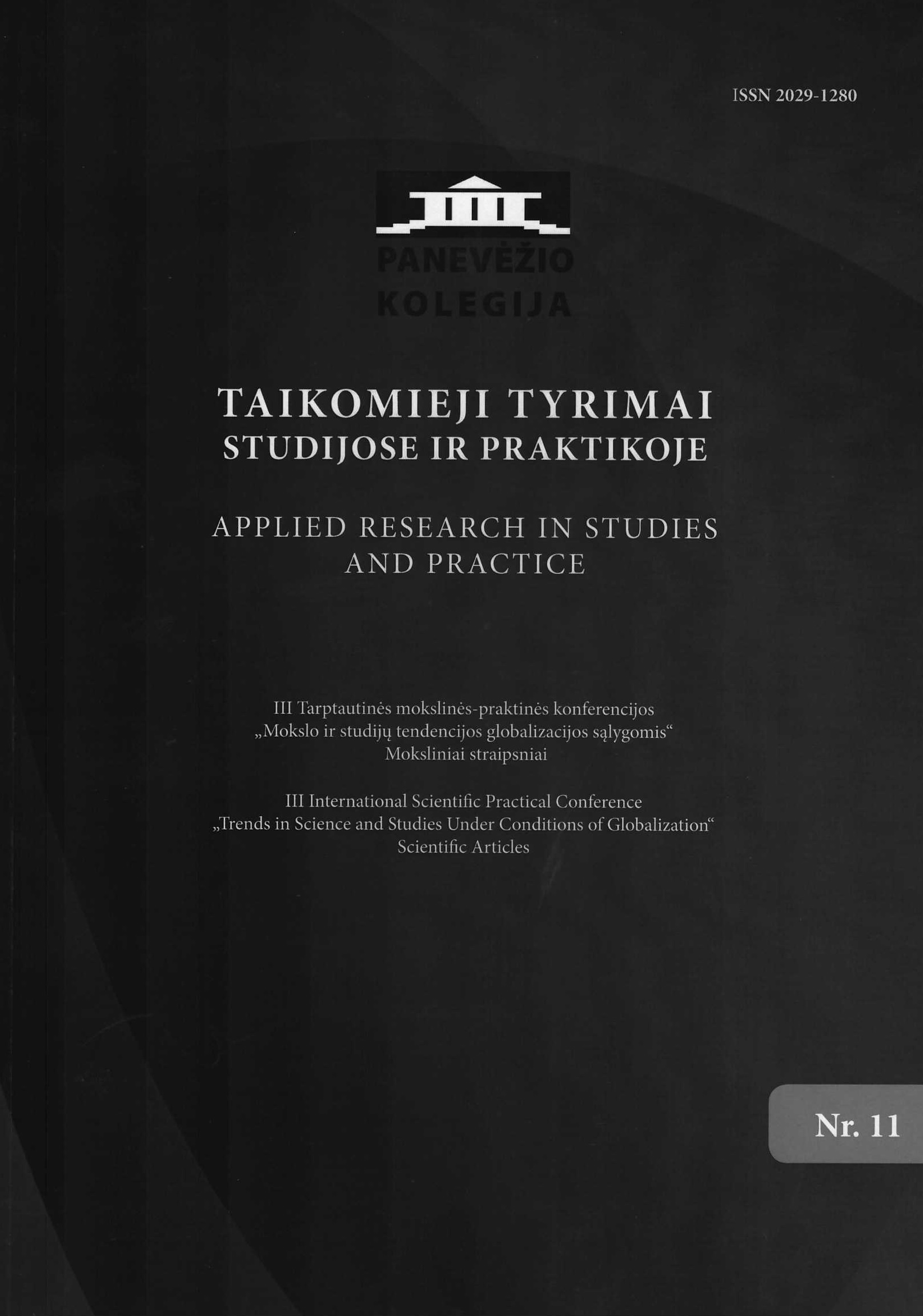Studentų, turinčių regos sutrikimų, profesijos pasirinkimo atitikimas
Adequacy of Profession Choice of Students with Impaired Vision
Author(s): Jūratė Varnauskienė, Loreta KlokmanienėSubject(s): Vocational Education, Inclusive Education / Inclusion, Sociology of Education
Published by: Panevėžio kolegija
Keywords: disability;vocational education;impairments
Summary/Abstract: The choice of profession for visually impaired young people is not easy because it depends on accuracy of images about chosen profession. It is important for the blind persons to understand the peculiarities of their disability, because it may help to make quick decisions when planning the future and profession.The paper deals with visual impairments such as visual sense and visual perception problems, which can not corrected by eyeglasses and contact lenses. The theoretical part discusses, what causes visual acuity and visual field abnormalities. Social adjustment of persons with visual disability requires special attention. If sighted people learn a lot by mimicking others, social adjustment of the blind and partially sighted requires instructions every day. The next stage begins when young people start to study and prepare for labour market.Four students with visual disability participated in the research. The interview method helped to reveal how young people understand their disability and evaluate it. Much attention is paid to explaining of who and how helped young people to choose the profession, why they have chosen studies at Panevezys College and what decided the choice of the particular profession. During the conversations, the authors tried to find out whether the intentions of students when choosing the profession, were adequate. It was interesting to find out if the College community is ready to work with students with visual impairments, and whether equal opportunities for all to participate in learning activities in different forms are created.The research revealed that the disabled meet difficulties in assessing their abilities, limited by disability when choosing the profession, so after one profession have been chosen it is replaced by another one. Vocational guidance of the disabled is insufficient, so they are forced to wander in choosing and changing profession. The College’s community intellectual potential to work with people with disabilities is sufficient, but the College’s technical possibilities are limited: there are no audio recordings of learning materials, JAWS program operating computers.
Journal: Taikomieji tyrimai studijose ir praktikoje
- Issue Year: 11/2015
- Issue No: 1
- Page Range: 99-105
- Page Count: 7
- Language: Lithuanian

